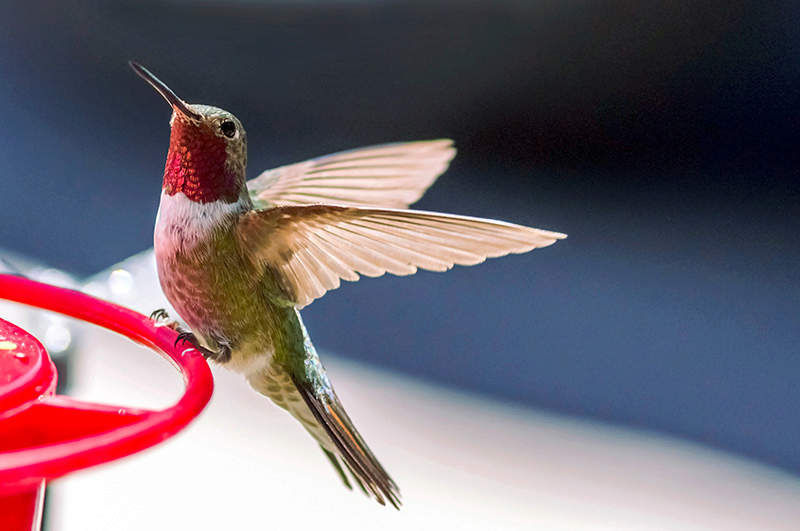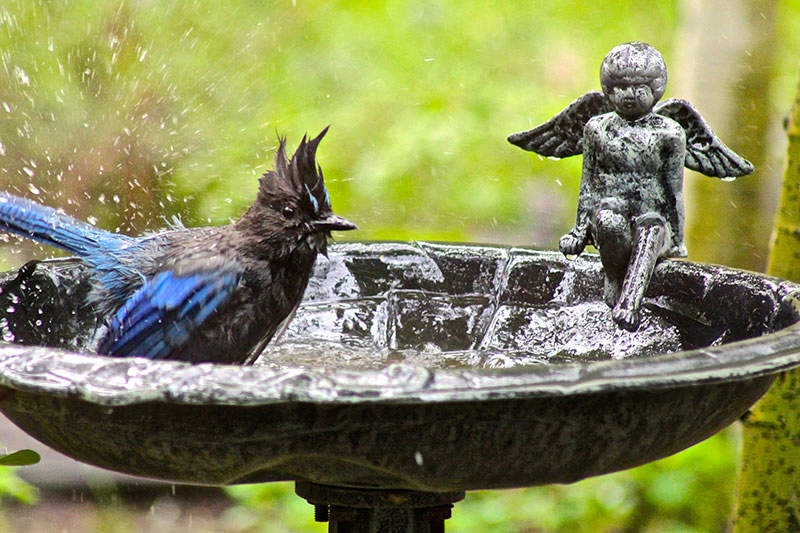Feeding Birds: Feeder Cleaning and Care
Keeping your feeders up during the warmer seasons can be very helpful for parent birds to get a quick snack while searching for insects and other natural foods for their nestlings. The hot weather also comes with a few serious hazards because germs flourish in those temperatures, so it’s essential to keep your feeders clean.
Keep seeds clean and dry—if they get soaked in rain, they can start to rot. Compost seeds or set them where they can dry if they do get soaked from the rain. Be sure to also platform bird feeders with screening rather than a solid bottom often drain well so you don’t need to worry.

Clean hummingbird feeders thoroughly any time the sugar water gets cloudy or when you see any traces of black gunk in the crevices. Use a sturdy brush (an old toothbrush can be ideal). It’s okay to wash them in your dishwasher as long as you thoroughly rinse them when you take them out. Change your birdbath water every few days, or more often if birds are getting it dirty. The mosquitoes that transmit West Nile Virus lay their eggs in birdbaths and other small containers with water—don’t give any a chance to hatch and reach adulthood!

Suet and peanut butter can get messy in hot weather. Never offer fresh suet from the supermarket in summer feeders—it gets rancid very quickly. “Rendered” suet—sold as suet cakes—usually holds up very well in summer, and cheap peanut butter (rather than the peanut butter that must be kept refrigerated to keep from separating) can be fine to offer. Make sure whenever you replenish it that you thoroughly clean the feeder. A high-powered hose can do the trick.





